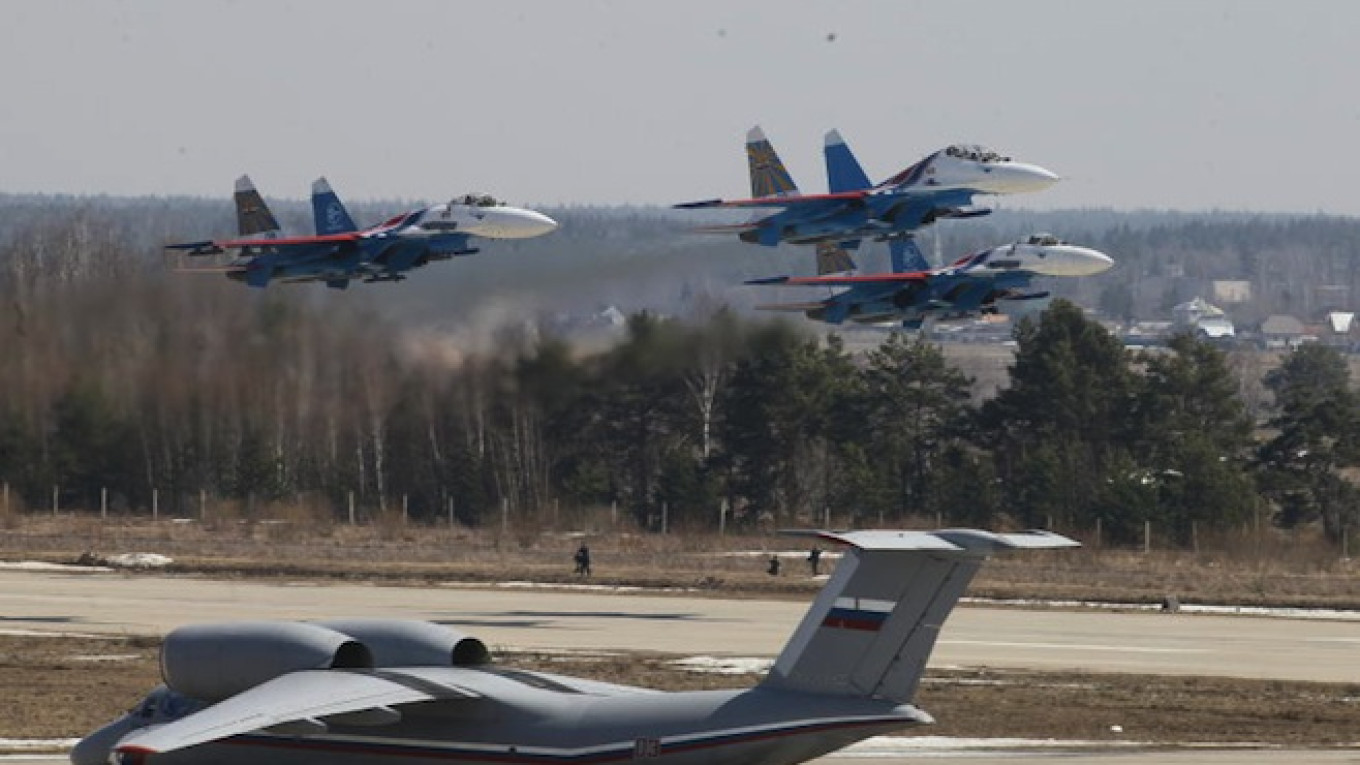A U.S. Air Force general on Monday cited what he called "alarming" moves by the Russian military to beef up its air forces in the years since the invasion of Georgia in 2008 and to establish firm defenses around areas like Crimea.
General Frank Gorenc, commander of U.S. Air Forces in Europe, told reporters he was concerned about Russia's moves to increase the quantity and quality of its aircraft and field unmanned aircraft.
"The advantage that we had from the air, I can honestly say, is shrinking," Gorenc said at the annual Air Force Association conference.
Gorenc called "alarming" both Russia's investments in modernizing its air force and in building formidable surface-to-air missile defenses. Two examples of the latter are defenses set up around the Crimea region of Ukraine, which Russia annexed in 2014, and Kaliningrad, a Russia enclave between Poland and Lithuania.
U.S. officials often warn of strides by China in developing defenses against U.S. stealth fighters and bombers and more capable surface-to-air missiles, but Gorenc said Russia was making similar moves.
"This is not just a Pacific problem; it is as significant in Europe as it is anywhere else on the planet," he said. "I don't think it's controversial to say they've closed the gap in capability."
Gorenc said the Air Force needed to develop new training, tactics and procedures to respond to the increased capabilities of its potential adversaries, and maintain the long-standing military edge it has enjoyed for decades while protecting U.S. and allied forces on the ground.
"We just need to be cognizant of it," he said. "We just need to continue to work really hard to make sure that we can provide that."
The U.S. Air Force this week is completing the first deployment of an unmanned MQ-1 Predator drone in Latvia, also the first such deployment in European airspace.
He said the move could help pave the way for greater use of drones in Europe, where congested airspace and logistical constraints have limited such opportunities thus far.
A Message from The Moscow Times:
Dear readers,
We are facing unprecedented challenges. Russia's Prosecutor General's Office has designated The Moscow Times as an "undesirable" organization, criminalizing our work and putting our staff at risk of prosecution. This follows our earlier unjust labeling as a "foreign agent."
These actions are direct attempts to silence independent journalism in Russia. The authorities claim our work "discredits the decisions of the Russian leadership." We see things differently: we strive to provide accurate, unbiased reporting on Russia.
We, the journalists of The Moscow Times, refuse to be silenced. But to continue our work, we need your help.
Your support, no matter how small, makes a world of difference. If you can, please support us monthly starting from just $2. It's quick to set up, and every contribution makes a significant impact.
By supporting The Moscow Times, you're defending open, independent journalism in the face of repression. Thank you for standing with us.
Remind me later.


